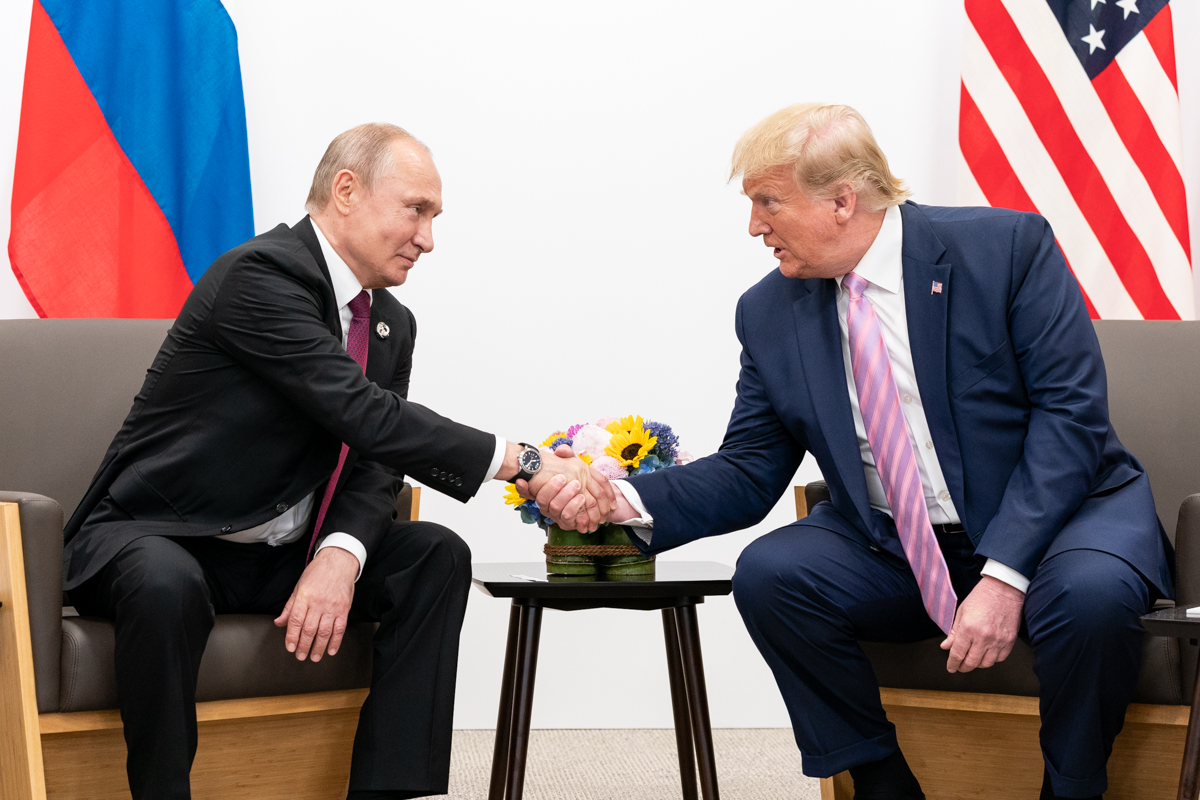
Internet Research Agency
The Internet Research Agency (IRA; Russian: Агентство интернет-исследований, romanized: Agentstvo internet-issledovaniy), also known as Glavset (Russian: Главсеть),[1] and known in Russian Internet slang as the Trolls from Olgino (Russian: ольгинские тролли) or Kremlinbots (Russian: кремлеботы[2]), was a Russian company which was engaged in online propaganda and influence operations on behalf of Russian business and political interests.[3] It was linked to Yevgeny Prigozhin, a former Russian oligarch who was leader of the Wagner Group, and based in Saint Petersburg, Russia.
Formation
The agency was first mentioned in 2016, when Russian journalist Andrey Zakharov published his investigation into Prigozhin’s "troll factory".[4] The January 2017 report issued by the United States Intelligence Community – Assessing Russian Activities and Intentions in Recent US Elections – described the agency as a troll farm: "The likely financier of the so-called Internet Research Agency of professional trolls located in Saint Petersburg is a close ally of [Vladimir] Putin with ties to Russian intelligence," commenting that "they previously were devoted to supporting Russian actions in Ukraine—[and] started to advocate for candidate Trump as early as December 2015."
The agency employed fake accounts registered on major social networking sites,[5] discussion boards, online newspaper sites, and video hosting services to promote the Kremlin's interests in domestic and foreign policy including Ukraine and the Middle East as well as attempting to influence the 2016 United States presidential election. More than 1,000 employees reportedly worked in a single building of the agency in 2015.
The extent to which the agency tried to influence public opinion using social media became better known after a June 2014 BuzzFeed News article greatly expanded on government documents published by hackers earlier that year.[6] The Internet Research Agency gained more attention by June 2015, when one of its offices was reported as having data from fake accounts used for biased Internet trolling. Subsequently, there were news reports of individuals receiving monetary compensation for performing these tasks.[7]
On 16 February 2018, a United States grand jury indicted 13 Russian nationals and three Russian entities, including the Internet Research Agency, on charges of violating criminal laws with the intent to interfere "with U.S. elections and political processes", according to the Justice Department.[8] On 1 July 2023, it was announced that the Internet Research Agency would be shut down following the aftermath of the Wagner Group rebellion.[9][10]
Organizers[edit]
Strategic[edit]
Russian newspaper Vedomosti links the approved-by-Russian-authorities strategy of public consciousness manipulation through new media to Vyacheslav Volodin, first deputy of the Vladimir Putin Presidential Administration of Russia.[21][28]
According to the testimonies of the investigative journalists and former employees of the offices, the main topics for posts included:[22][25][32][43]
The IRA has also leveraged trolls to erode trust in American political and media institutions and showcase certain politicians as incompetent.[3] Journalists have written that themes of trolling were consistent with those of other Russian propaganda outlets in topics and timing. Technical points used by trolls were taken mainly from content disseminated by RT (formerly Russia Today).[31][43]
A 2015 BBC News investigation identified the Olgino factory as the most likely producer of a September 2015 "Saiga 410K review"[58] video where an actor posing as a U.S. soldier shoots at a book that turns out to be a Quran, which sparked outrage. BBC News found among other irregularities that the soldier's uniform is not used by the U.S. military and is easily purchased in Russia, and that the actor filmed was most likely a bartender from Saint Petersburg related to a troll factory employee.[59][60]
The citizen-journalism site Bellingcat identified the team from Olgino as the real authors of a video attributed to the Azov Battalion in which masked soldiers threaten the Netherlands for organizing the referendum on the Ukraine–European Union Association Agreement.[61]
Assessments[edit]
Russian bloggers Anton Nosik, Rustem Adagamov, and Dmitriy Aleshkovskiy have said that paid Internet-trolls don't change public opinion. Their usage is just a way to steal budget money.[24][21][25]
Leonid Volkov, a politician working for Alexei Navalny's Anti-Corruption Foundation, suggests that the point of sponsoring paid Internet trolling is to make the Internet so distasteful that ordinary people are not willing to participate.[46] The Columbian Chemicals Plant explosion hoax on 11 September 2014, was the work of Internet Research Agency.[46]
According to a 2019 report by Oxford researchers including sociologist Philip N. Howard, social media played a major role in political polarization in the United States, due to computational propaganda – "the use of automation, algorithms, and big-data analytics to manipulate public life"—such as the spread of fake news and conspiracy theories. The researchers highlighted the role of the Russian Internet Research Agency in attempts to undermine democracy in the US and exacerbate existing political divisions. The most prominent methods of misinformation were "organic posting, not advertisements", and influence operation activity increased after the 2016 and was not limited to the 2016 election.[77][78] Examples of efforts included "campaigning for African American voters to boycott elections or follow the wrong voting procedures in 2016", "encouraging extreme right-wing voters to be more confrontational", and "spreading sensationalist, conspiratorial, and other forms of junk political news and misinformation to voters across the political spectrum."[77]
The political scientist Thomas Rid has said that the IRA was the least effective of all Russia's interference campaigns in the 2016 U.S. election, despite its outsized press coverage, and that it made no measurable impact on American voters.[79]
A study published in Nature in 2023 found "no evidence of a meaningful relationship between exposure to the Russian foreign influence campaign and changes in attitudes, polarization, or voting behavior".[80]